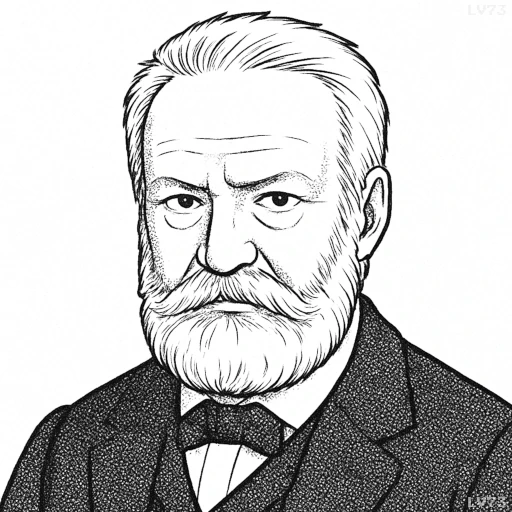“We say that slavery has vanished from European civilization, but this is not true. Slavery still exists, but now it applies only to women and its name is prostitution.”

- February 26, 1802 – May 22, 1885
- Born in France
- Author, poet, playwright
table of contents
Quote
“We say that slavery has vanished from European civilization, but this is not true. Slavery still exists, but now it applies only to women and its name is prostitution.”
Explanation
In this powerful quote, Victor Hugo critiques the state of freedom and equality in European society, particularly for women. While slavery, in its historical form, may have been abolished, Hugo argues that women continue to face a form of subjugation and exploitation, though it has been redefined. He draws a parallel between the traditional notion of slavery and prostitution, suggesting that both represent systems where individuals, in this case, women, are objectified, controlled, and forced into servitude for the benefit of others. The exploitation of women, particularly in the form of prostitution, is framed as a modern form of slavery—a societal injustice that continues to exist beneath the surface of so-called civilized society.
Hugo’s words reveal his concern for the lack of agency and dignity women were afforded, even in the absence of traditional slavery. He argues that true freedom and equality cannot be achieved as long as such forms of exploitation persist.
In modern terms, this quote highlights how gender inequality and the objectification of women can still manifest in society, particularly through practices like prostitution, which often involves the exploitation of vulnerable individuals. It calls for us to recognize that while some forms of slavery may have formally ended, new forms of oppression and injustice can continue to affect marginalized groups, especially women. The quote serves as a reminder to address the root causes of inequality and social injustice that still persist today.
Would you like to share your impressions or related stories about this quote in the comments section?




